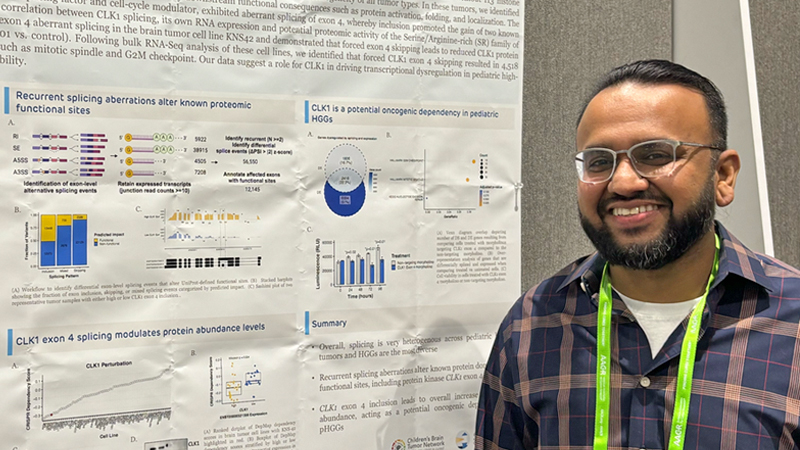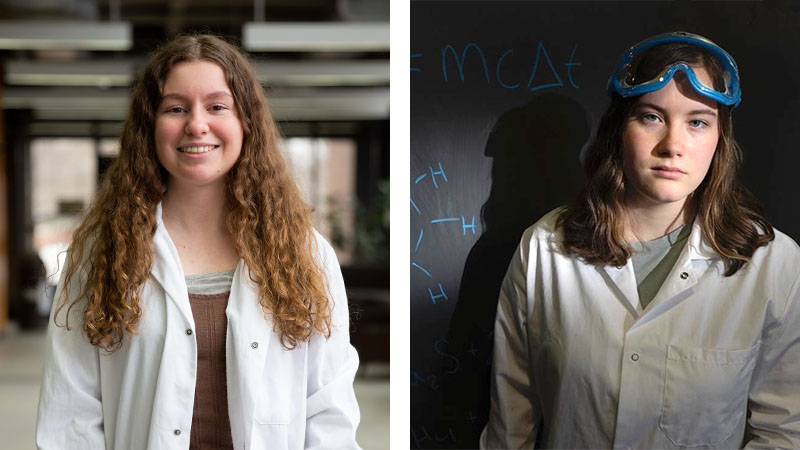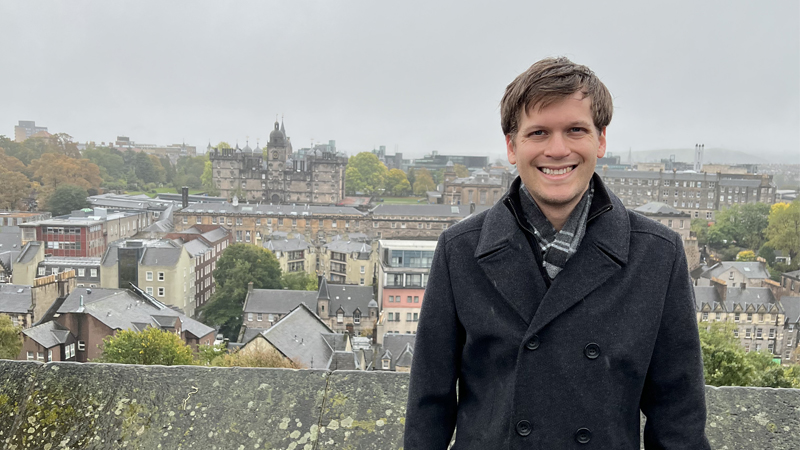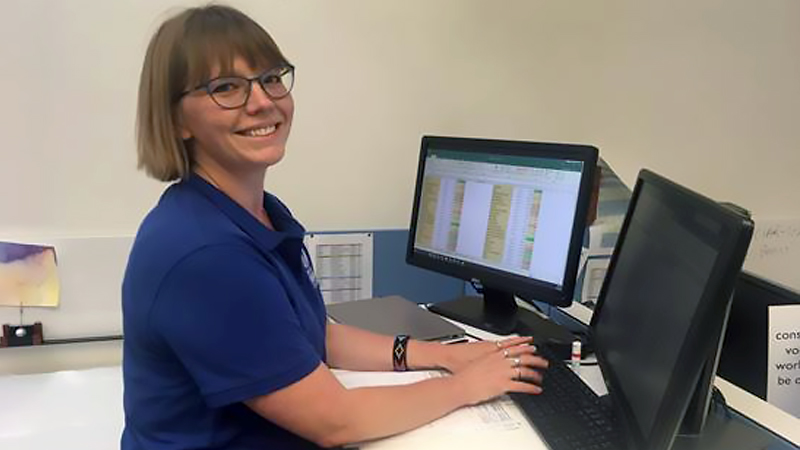From Coding Co-op to Cancer Research: Bioinformatics Bridges the Gap
Ammar Naqvi ’06 majored in bioinformatics at RIT and leveraged his co-op to solidify an exciting career path in bioinformatics.

Initially embarking on an academic path toward computer science, Ammar Naqvi found himself captivated by the realms of biology. When he discovered the bioinformatics BS program at RIT, one of the nation’s first undergraduate programs to seamlessly integrate computer science, data science, and biology, he knew he had found his calling. After graduation, armed with a comprehensive curriculum and invaluable co-op experience, Ammar ventured into the diverse and exciting field of bioinformatics. His journey ultimately led him to his current role as a Senior Bioinformatics Scientist at the Children's Hospital of Philadelphia, where he conducts research on pediatric cancer, combining his passion for computational and biological sciences.
When asked why Ammar chose RIT, he cited the institutional support for hands-on experiences, such as co-ops. "RIT stands out as a unique institution for its unmatched emphasis on helping students pursue and obtain practical experience before graduation. The hands-on experience I gained through my co-op was undeniably the most impactful factor in shaping who I am today.”
During his third year at RIT, Ammar landed a co-op at the University of California, San Diego working with Dr. Alexander Hoffmann where he used coding and mathematical modeling to study gene signaling. He obtained invaluable insights into coding practices and their practical application in real-world systems that ultimately solidified his career trajectory.
“My co-op exposed me to the culture of both the laboratory and academia, which I hadn't previously encountered. I had the opportunity to attend talks by Nobel laureates discussing their groundbreaking discoveries, participate in lab meetings where we addressed various issues and challenges, and explore journal articles that initially seemed beyond my grasp. I consider myself fortunate to have been a part of such an incredible laboratory, guided by an exceptional mentor. Even today, I am grateful for the sense of belonging I felt, despite being one of the youngest and least experienced members at the time!”
After graduating from RIT with his BS degree, Ammar went to the Salk Institute of Biological Sciences, founded by Jonas Salk, who developed the polio vaccine. “I worked with cutting-edge next-generation sequencing tech, which sparked my interest in genomics. It was an exciting place to be as our lab was one of the first to dive into next generation sequencing technology!”
Eventually, Ammar decided to broaden his academic research by pursuing a Master's in Bioinformatics and Computational Biology at George Mason University, and ultimately a doctoral program at Rutgers University. At George Mason, Ammar studied the intricate ecosystem of the human microbiome, and then progressed at Rutgers to study RNA regulatory mechanisms and their impact on aging. Upon completing his degrees, Ammar secured a postdoctoral research position at the Children’s Hospital of Philadelphia and the University of Pennsylvania, focusing on alternative splicing in pediatric cancers.
As a field, bioinformatics provides many exciting career and research applications. Ammar refers to his trajectory as “a mosaic of experiences and transitions,” or put another way—the world is your oyster. Bioinformatics provides many avenues to explore.
Today, Ammar works as a Senior Bioinformatics Scientist at the Children’s Hospital of Philadelphia conducting research on numerous extensive multi-omic datasets in order to uncover mechanisms involved in pediatric cancer. “My approach combines machine learning and predictive modeling with traditional molecular biology techniques to gain insight into both fundamental and practical molecular mechanisms in pediatric brain tumors. By harnessing and utilizing big data, my goal is to generate novel hypotheses and drive biomedical science forward, with a particular focus on improving outcomes for children who are often the most marginalized population.
When asked what advice he would give students pursuing this field, Ammar responded, "Follow your passions and persist in your pursuits. But stay receptive to feedback and embrace the inevitable fluctuations along the way. My journey was filled with challenges and setbacks, but I persisted. I also recommend surrounding yourself with diverse individuals — in terms of race, class and educational level — as that has enriched my journey and kept me grounded throughout my career.”












